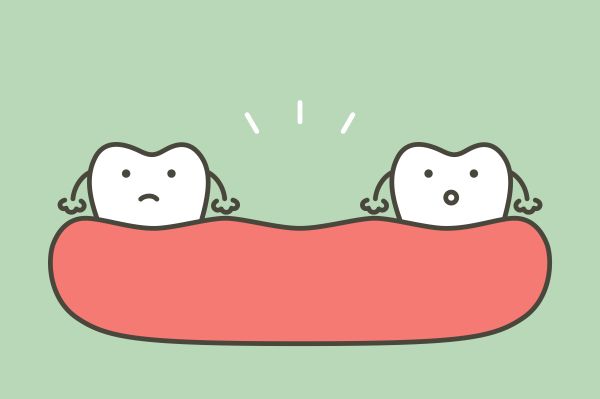Why It Is Important to Replace Missing Teeth

It is essential to replace missing teeth the moment they fall out. Failing to do so can lead to serious health issues. Teeth serve an important function: They help people break down foods, pronounce certain words and their roots keep your jawbone tissue healthy.
What happens when you do not replace missing teeth
When some of a person's teeth are missing, there are changes that immediately start taking place. For starters, the remaining teeth will begin to move toward the gap in an attempt to fill it up. This leads to them falling out of their proper alignment, leading to bite issues that require orthodontic treatments to correct.
In addition, patients start to lose jawbone tissue when missing teeth are not quickly replaced. This occurs because the person's jawbone is no longer being properly stimulated by the missing teeth and their roots. The result is the loss of a significant amount of bone tissue and changes to the patient's facial structure.
The drawbacks of failing to replace missing teeth do not stop there, though. Patients who have lost some of their natural teeth tend to be rather conscious about the way they look. The condition of a person's teeth are one of the first things people notice about their appearance, and judgments are often made based on their condition. This leads to a loss of confidence as they find themselves constantly worrying about what others think about them during interactions.
These patients have good reason to be worried about their appearance. A healthy-looking, complete set of teeth is often viewed as a sign of attractiveness and good health, while missing teeth are seen as unattractive and a sign of aging.
A missing tooth also leads to complications with the opposing arc. The tooth opposite the missing one no longer has anything to make contact with, and that can lead to a host of issues like gum problems, shifting, looseness or fractures.
How are missing teeth replaced?
Now that we have a solid understanding of the consequences of not replacing missing teeth, let us go over common options for replacing them. These include:
1. Dentures
Dentures are the cheapest way to replace missing teeth. These devices consist of two parts. A base that connects the prosthetic to the patient's mouth and artificial teeth that serve as a replacement for the missing teeth.
2. Bridges
Dental bridges are a more expensive alternative to dentures, but these devices offer a more permanent solution for missing teeth. A bridge is anchored on the two teeth closest to the gap on both sides. These teeth are often protected with crowns for increased stability.
3. Implants
Implants are a great way to replace missing teeth. These devices replace missing teeth and their roots, restoring the patient's appearance and preventing most of the issues associated with missing teeth.
Wrapping up
It is not always possible to prevent the loss of a tooth, but it is essential to understand what happens when teeth are missing to prevent further issues from developing. Schedule an appointment with one of our dentists to learn more about your options.
Here's how you do that …
Request an appointment in our McKinney dentist office here: https://www.yourdowntownmckinneydentist.com.
Check out what others are saying about our services on Yelp: Read our Yelp reviews.
Related Posts
Tooth decay happens when the enamel, or tooth surface, is damaged. You can use oral hygiene basics to prevent it. However, tooth decay is still one of the most common health problems in the world. The CDC reports that in the United States alone, more than 90% of adults have had cavities.Everyone has bacteria in…
Your teeth play a major role in your life. They help you eat and talk, and they complete your smile. Practicing oral hygiene basics will keep your teeth healthy so that they can serve you well for a lifetime.One of the most important aspects of dental hygiene is regular brushing. Do it twice a day.…
Everyone learns oral hygiene basics when they are young, but some details get lost over time. For example, many adults are confused about what type of toothbrush to use. This simple tool comes in many different forms, including a variety of sizes and a range of bristle textures. You may wonder why there are so…
An emergency dentist is essential for treating dental injuries, including a knocked-out tooth. Whether resulting from a sports injury, accident, or fall, a lost tooth requires immediate attention to improve the chances of successful re-implantation. Timely care from a skilled emergency dental professional further increases the likelihood of preserving the tooth and reducing the risk…
